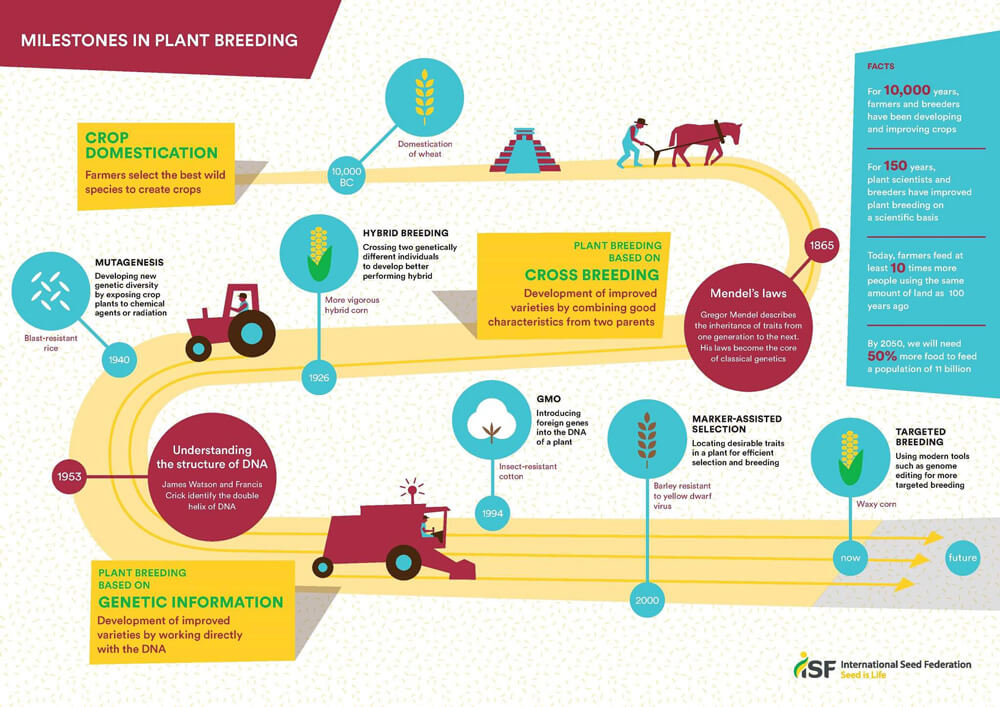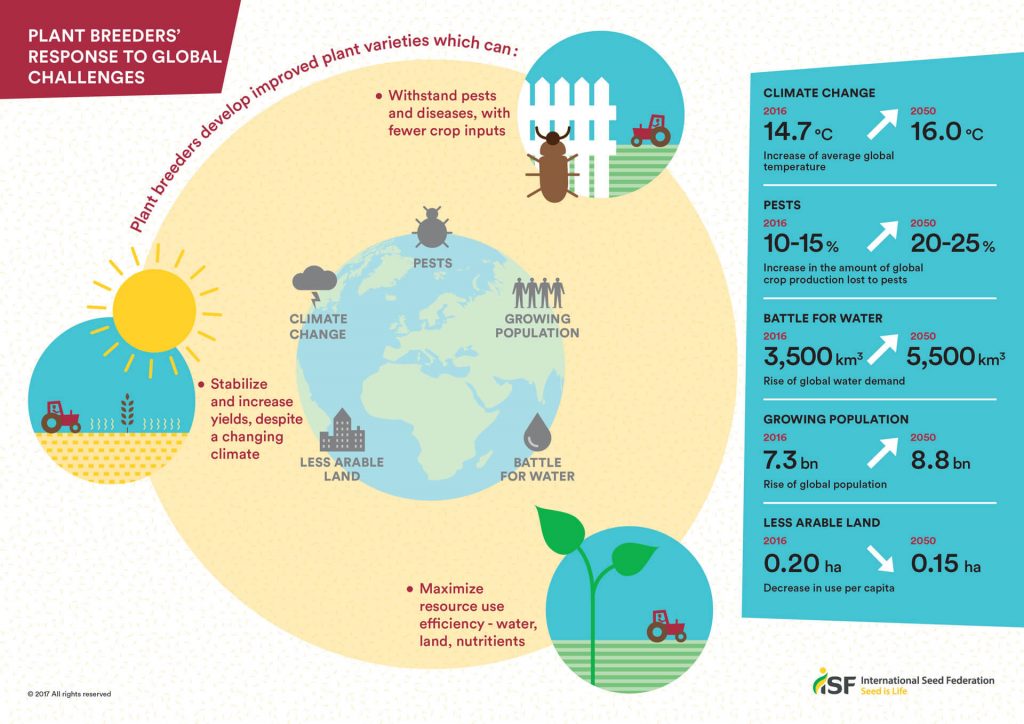The evolution of plant breeding
Plant breeding is not a new concept. Plant breeders have always responded to society’s need for stable yields and crops that are resistant to plant pests and diseases.
The first farmers, realising the value of genetic diversity, selected the best plants to provide seed for their next crop. In 1856 Augustinian monk Gregor Mendel discovered the genetic laws of inheritance in plants. Since then, scientific breakthroughs have dramatically accelerated plant improvement. What would have taken farmers centuries to achieve is now accomplished in years.
An increased understanding of plant biology and plant genes has enabled plant breeders to more precisely develop useful characteristics such as disease resistance or drought tolerance.
These achievements are the foundation for the continuous development of new plant varieties better adapted to meet the global challenges we are facing.
The key to food security
The planet is changing and plants have to adapt too if we are to provide enough food to feed future generations. Plant breeding is the essential platform for sustainable agriculture. Innovation is the key to food security.
Through innovation we can adapt to climate change whilst improving crop yields, food quality and food safety, benefiting everyone in the food chain, from farmers to consumers.

